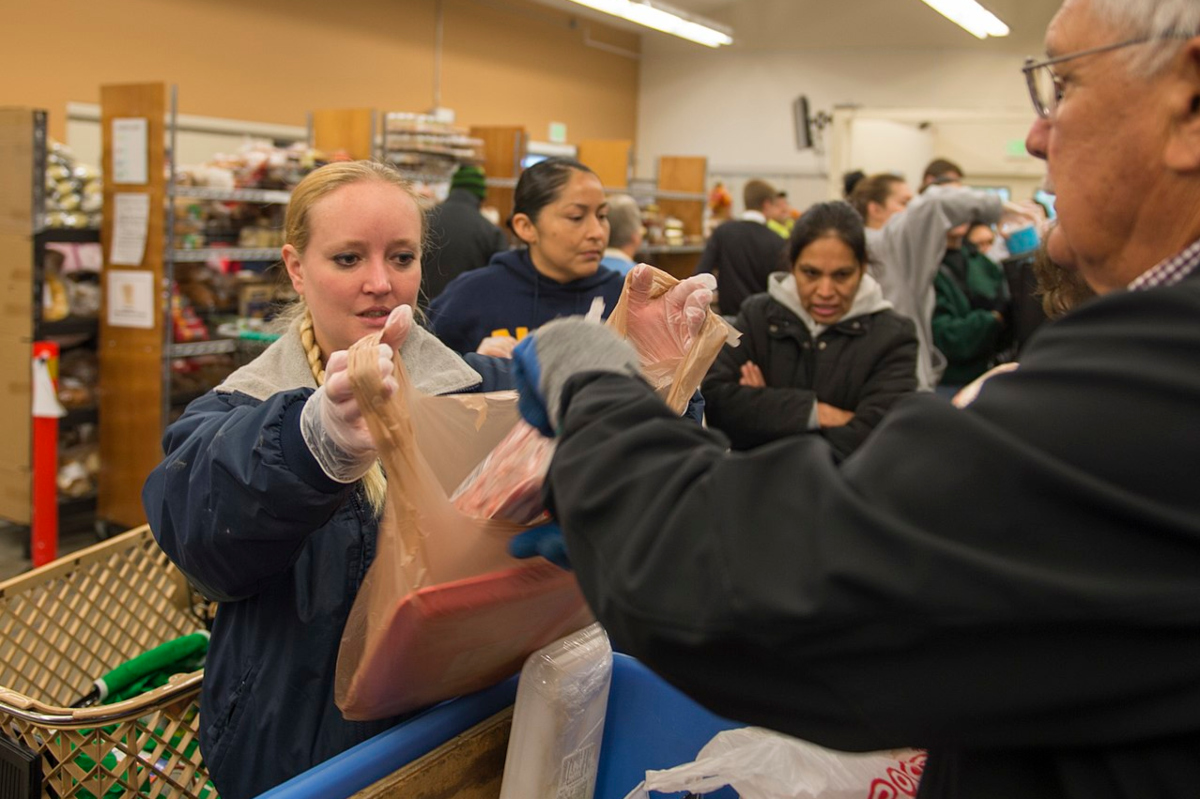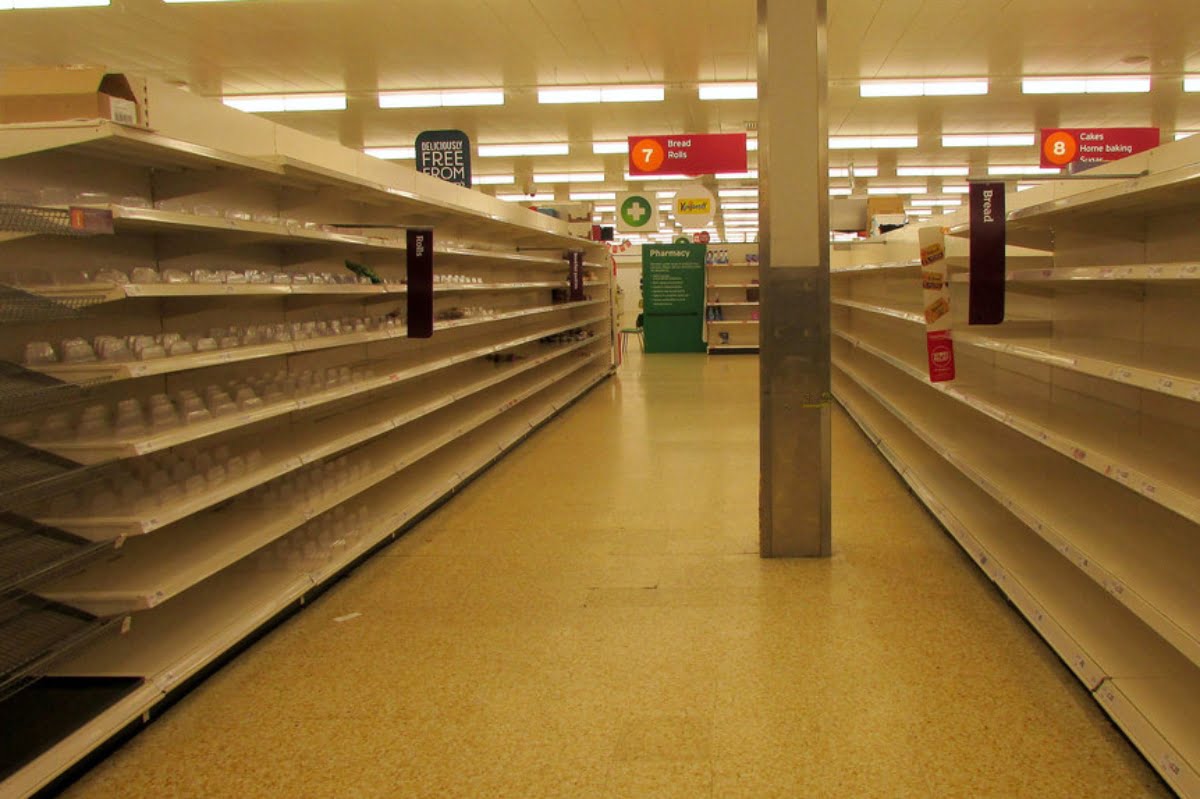With families forced to skip meals, the coronavirus crisis has shone a spotlight on the question of food distribution. To end hunger and insecurity, we need public canteens and nationalised supermarkets, as part of a socialist economic plan.
The lockdown has produced a crisis of food poverty not seen in decades. With unemployment shooting up, and many workers seeing their paid hours cut, an increasing number are finding themselves unable to afford basic needs from supermarkets.
Food banks were already in high demand before the pandemic, due to Tory welfare cuts and precarious work. An estimated 1-in-50 of UK households (2%) received food parcels in 2018-19, according to figures from the Trussell Trust.
Now, with the onset of the COVID-19 outbreak, this situation has been greatly exacerbated. According to a YouGov poll conducted recently on behalf of the Food Foundation, 16% (equivalent to 8.1 million people) are estimated to be facing food insecurity.
6% (3 million) stated that the coronavirus crisis had led to them having to skip some meals. 1.5 million replied that they had gone a whole day without eating. Some independent food banks have seen demand increase by 300% within the past few weeks.
There has been a rapid increase of over one million applying for Universal Credit. But there is a five-week wait for the first payment, and the piecemeal sums that follow are a measly amount. This is a matter of life or death for many. Demands for the abolition of this waiting period are therefore gaining mass support.
National Food Service
Activists in mutual aid groups are recognising the necessity of community organisation to address this food crisis. And left-wing Labour members are beginning to mobilise around demands for a National Food Service.
Rebecca Long-Bailey, now the Shadow Education Secretary, has led the charge on this demand, stating that:
“We need a comprehensive and coordinated response from the government that I call the National Food Service. This service would coordinate the supermarkets and their supply chains and work with Royal Mail so that everyone receives the essentials who needs them. We really can make sure that no one is left behind in this crisis.”
NEW: Labour leadership candidate Rebecca Long-Bailey has called on the government to set up a “National Food Service”, coordinating supermarkets and their supply chains, to help people who are self isolating during the Covid-19 crisis: https://t.co/lUaFxKftcE
— LabourList (@LabourList) March 23, 2020
Long Bailey’s proposal is linked to postal workers’ call for Royal Mail to function as an emergency service for the vulnerable during the lockdown. In this way, posties could provide a vital link between local councils, food banks, and vulnerable households. Such an initiative cries out for public ownership and workers’ control in the postal service.
Production and distribution
But RLB’s demands are confined within the sphere of distribution. At a recent online discussion on the subject, organised by Momentum offshoot The World Transformed, however, speakers correctly raised the question of production as a necessary component of any programme designed to tackle the food crisis.
Some on the left are looking towards small-scale co-operative production. But what about the vast tracts of land and industrial facilities with the potential to provide far above our needs?
Rather than going backwards to small-scale production, big farmlands and food factories should be nationalised and run by workers, in collaboration with union representatives of other key industries. This also means nationalising the land itself, sweeping aside profiteering landlords, and investing in food science in order to improve yields on a sustainable basis.
Mutual Aid Groups
 Olivia Blake, the Labour MP for Sheffield Hallam, is amongst those who have argued against the cooperative model, explaining that these coops would inevitably face decline as isolated pockets of workers’ control. Instead, the left-wing Labour MP has raised the demand for Universal Basic Services – run as part of a national plan across the country.
Olivia Blake, the Labour MP for Sheffield Hallam, is amongst those who have argued against the cooperative model, explaining that these coops would inevitably face decline as isolated pockets of workers’ control. Instead, the left-wing Labour MP has raised the demand for Universal Basic Services – run as part of a national plan across the country.
“What we need now is support from the state to make this have longevity beyond the crisis,” Blake has stated, referring to the network of mutual aid groups that have been established in recent weeks.
Looking forward, this should involve linking food banks and mutual aid groups, and establishing public canteens, providing affordable and healthy meals in working-class communities.
The labour movement has an important role to play in this process. In some regions, trade unions have already been actively involved in local mutual aid groups. This is a welcome step forward in transforming these groups into models of working-class control over communities, the economy, and wider society.
Nationalise the supermarkets!
Any serious programme to address food insecurity must also involve taking control of the big supermarkets, which dominate the distribution of food. Considering their superior stock capacity, technology and organisation, the nationalisation of the major supermarket chains is essential if the needs of workers and vulnerable households are to be met.
Under the anarchy of the market, scenes in supermarkets in recent weeks have been one of chaos, with empty shelves, frantic shoppers, and long queues. In the process, unscrupulous supermarket bosses have taken advantage of surging demand to raise prices and boost profits.
We must put an end to this racketeering and profiteering, by taking the supermarket monopolies into public ownership. This must be accompanied by workers’ control, so that supermarket staff can organise and implement necessary health and safety measures.
Above all, the public ownership of supermarkets must be incorporated into a socialist plan of production and distribution. This must involve the nationalisation of the banks, utilities, and major monopolies, in order to create an economy based on needs, not profits.
These bold demands should be a clarion call for the Labour left to organise around.






